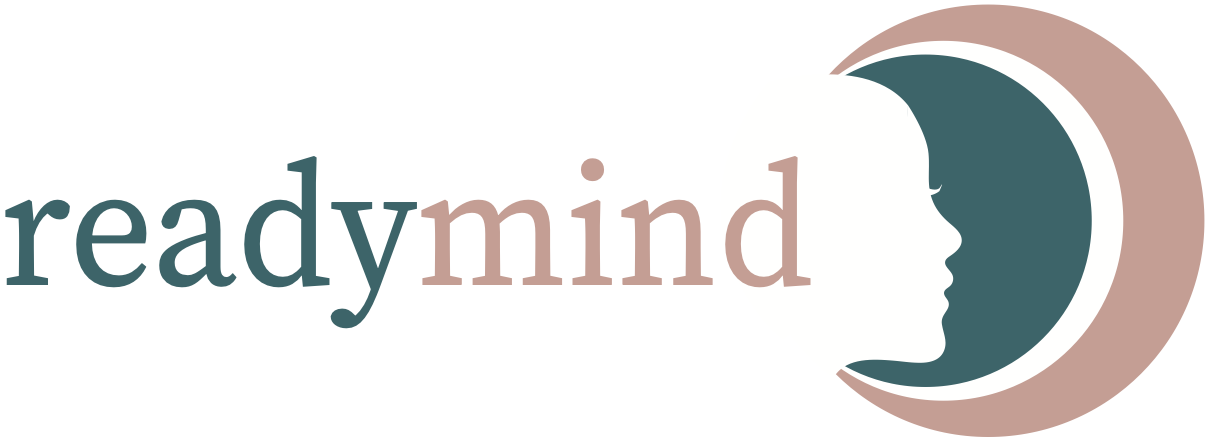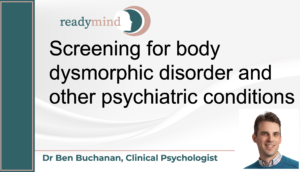How to stop body checking
Written by Cara Briggs and Published in FashionJournal.com.au on 20th September 2022
In the era of selfies, Instagram filters and TikTok it’s rare to go a day where you don’t look at yourself. It’s one thing to glimpse at your reflection before leaving the house and quite another to compulsively check your size and appearance. But at what point does the urge to check your reflection become problematic?
I’ve experienced instances where my urge to check my skin in the mirror overwhelms me entirely. If I have a blemish on my face, I repeatedly check to see its development, hoping just one more glance will show that it’s healed and my anxiety can cease. Of course, this is never the case. Instead, I become hyper-fixated and increasingly frustrated at the mark that dares to taint my face.
People have repeatedly told me “Just don’t look at yourself!”. While logical, this sort of rationale falls in line with telling someone who struggles with restrictive eating to “Just eat!”. As with any compulsive behaviour, its reasoning is deeply psychological. In recent years I’ve discovered my compulsive behaviour falls under a category known as body checking.
Body checking is classified as an anxiety-related behaviour that involves repeatedly checking your appearance, size and shape. Day to day this can manifest as repeatedly looking in the mirror, weighing yourself numerous times a day, pinching parts of your body as well as constantly comparing your shape and appearance to others. Clearly, these obsessive behaviours can be detrimental to your mental health.
To explore the nature of body checking and ways to eliminate the habit, I spoke to clinical psychologists Amy Robins and Dr Ben Buchanan. As a habit, Ben says that body checking is an “ineffective attempt to reduce body image anxiety”. This begs the question, why do we do it?
As with any psychological behaviour, there’s no simple answer but often it’s an attempt to disprove a concern we have with our appearance. Ben tells me a common concern among his patients is the fear of being fat. A form of body checking in this scenario would be regularly weighing yourself, a habit that can result in three outcomes.
“They’re going to be pleased with their body, they’re going to feel nothing towards their body or neutral or checking is going to backfire and they’re going to be horrified with the results. But any of those three options are problematic because it just goes about reinforcing the behaviour of checking,” he says.
As Ben explains, people with body-image concerns rarely have a positive outcome from checking their appearance. Instead, it’s often a “futile attempt to reassure themselves that their body is okay and [it] instead exacerbates their pre-existing body image anxiety”. Another reason people body check is to seek information that confirms their beliefs. This form of confirmation bias can motivate negative behaviours like restrictive eating.
“Patients who constantly weigh themselves will often feel the need to limit their food intake when they’re not satisfied with the number on the scale,” Amy explains to me. According to Amy, compulsive body checking can lead to increased feelings of anxiety and depression and will often make an individual isolate themselves due to feelings of dissatisfaction.
“[Body checking] causes you to become tunnel visioned on aspects you don’t like about yourself. It’s like a mosquito bite – the more you scratch it, the more infected it becomes so you are much more preoccupied with it. Whereas if you just leave it, put some lotion on it and come back another day, you wouldn’t notice it as much.”
When it comes to stopping the destructive habit of body checking, Ben explains it’s not a simple fix and it normally requires an individual treatment plan that explores the psychological motivations behind the habit. However, he recommends a few skills that can help reduce the frequency of checking.
“My advice would be to resist the urge to check and knowing that every time you check, you’re perpetuating the assumption that you can only feel good if your body is a particular way. What we want to be doing is breaking down that assumption that you can only feel good if your body looks a particular way and re-orientating attention onto other non-body related things,” he tells me.
Of course, resisting the urge is easier said than done. If you’re struggling, Ben recommends engaging in a behaviour that uses as many senses as possible. “Going for a walk is a great way to resist an urge because you have to use your sense of sight, you have to hear things and you’re using your body so using your sense of touch.”
Another suggestion Ben makes is a term he refers to as ‘mirror hygiene’. “If you put your hand against the mirror, you shouldn’t stand any closer than [an] arm’s length from the mirror. This prevents you from becoming hyper-focused on minor imperfections that can perpetuate the checking,” he tells me.
Throughout my journey of body checking, I can vouch for the effectiveness of working with a psychologist to help reduce the behaviour. While I still struggle daily with urges to compulsively body check, using the techniques Ben suggests has been incredibly helpful. If you’re struggling with body-checking compulsions, using these techniques day-to-day and seeing a professional can help you break free from the toxic cycle it can trap you in.
If you’re struggling with body image issues or eating disorders, you can call the Butterfly National Helpline at 1800 33 4673 for free and confidential support, or email or chat to them online here.



